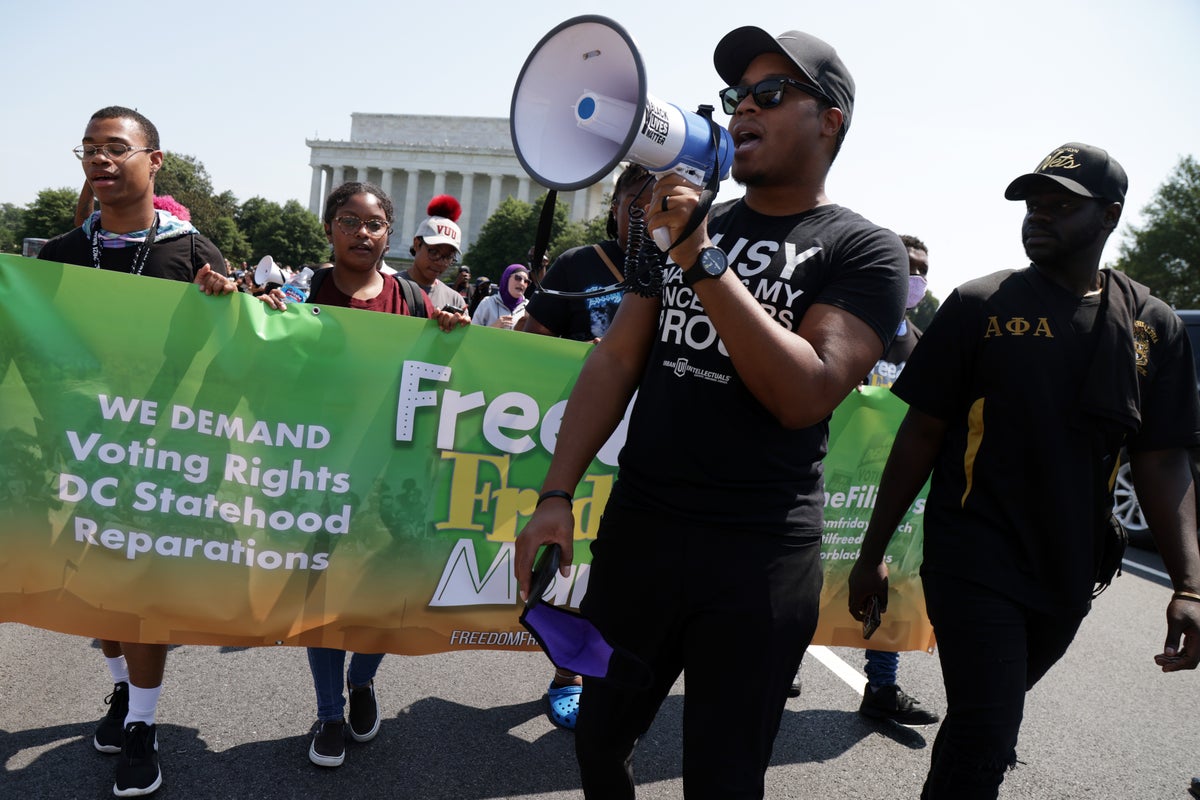
A United Nations committee is calling on the US to begin the process of attempting to give reparations to descendants of enslaved people as part of a larger need to provide “redress for legacies of the past.”
“The Committee is concerned that the lingering legacies of colonialism and slavery continue to fuel racism and racial discrimination in the [US] undermining the full enjoyment of all human rights and fundamental freedoms by all individuals and communities,” the Committee on the Elimination of Racial Discrimination wrote in a report, released on Tuesday.
The body, part of the UN’s human rights office, monitors the progress made by member states in enforcing the UN’s Convention on the Elimination of All Forms of Racial Discrimination (CERD), which the US joined in 1994 with various reservations and caveats.
The Tuesday report highlighted the ways the US continues to perpetuate racial inequality through police violence, gun violence, and environmental racism, and recommended a reparations commission as a key strategy to begin the justice process.
The UN body praised state-level efforts at racial healing in America, such as Maryland’s Lynching Truth and Reconciliation Commission, the first such body of its kind in the US, as well as California’s ongoing study of reparations for descendants of enslaved people.
It called on Congress to adopt HR 40, a bill from US representative Sheila Jackson Lee, a Democrat from Texas, which would establish a commission to study and develop reparations proposals.
Rights activists praised the UN for getting behind US reparations.
“The unprecedented attention given by the UN to the lingering legacies of colonialism and slavery and the CERD committee’s call for reparations marks a turning point in the U.S. human rights movement,” Nadia Ben-Youssef, advocacy director of the Center for Constitutional Rights, said in a statement.
“The lived experiences of our partners clearly traced the afterlife of slavery, and the committee’s expressed concerns about environmental racism in Cancer Alley is testament to the powerful advocacy of our partners – their testimonies and analysis offered the international community an irresistible vision of a radically different future.”
The idea of reparations has long been discussed in the US, from early promises of “40 acres and a mule” to freedmen after the Civil War, to more recent dialogues. The topic is an extremely complicated one, raising questions about how extensively to measure the harm of slavery and Jim Crow racism, and how best to define who should receive reparations as a result.
It wasn’t all bad news in the report. The UN monitors praised US leaders for advances like Joe Biden’s May executive order on police use-of-force tactics and Donald Trump’s 2018 First Step Act, which partially reformed drug sentencing and rehabilitation.
But the US still needs to do more, CERD argues, pointing to recent shooting tragedies like Uvalde and Buffalo to show how the US’s various problems with gun violence and racism often interwine.
As the committee noted, such shooting violence “disproportionally affects racial and ethnic minorities, particularly people of African descent, Indigenous Peoples and persons of Hispanic/Latino origin and Asian descent.”
It also faulted the Biden administration for failing to pass police reform legislation after the death of George Floyd in Minneapolis.







